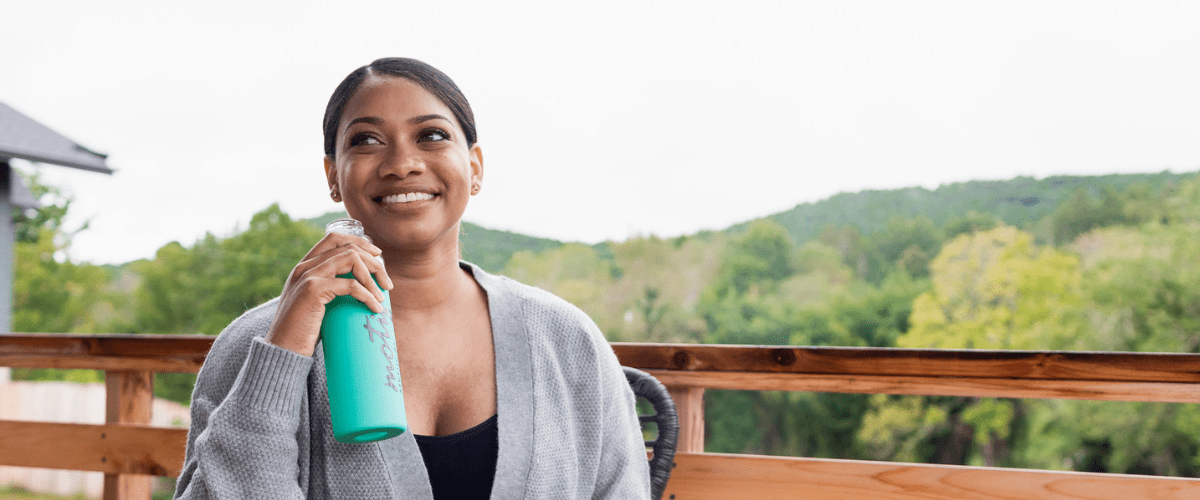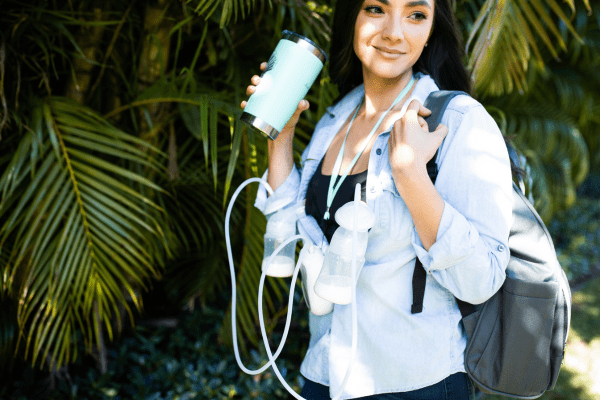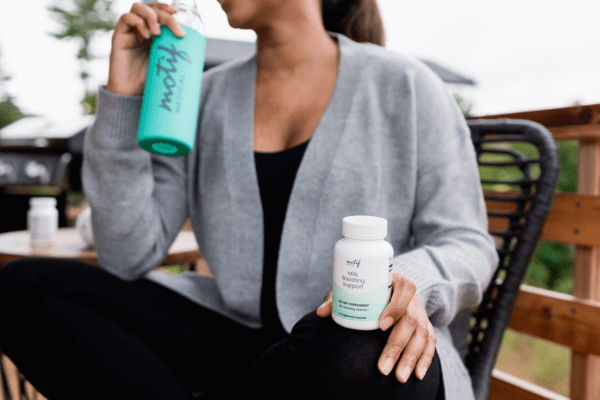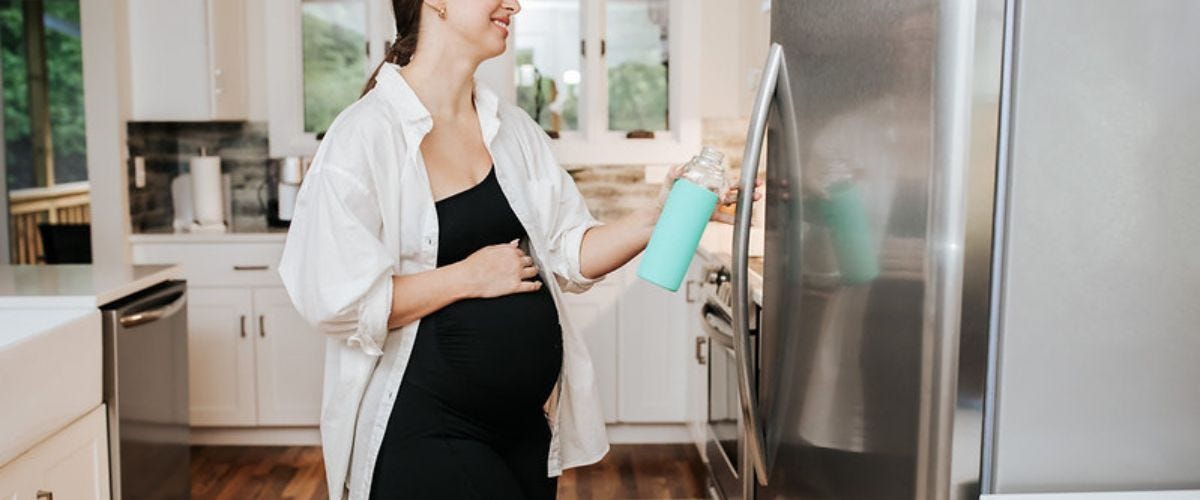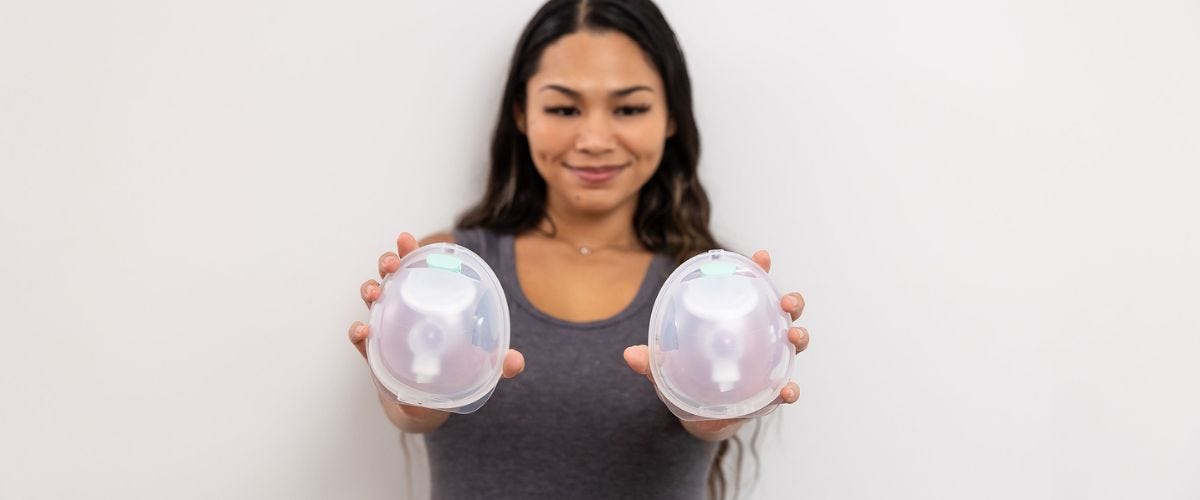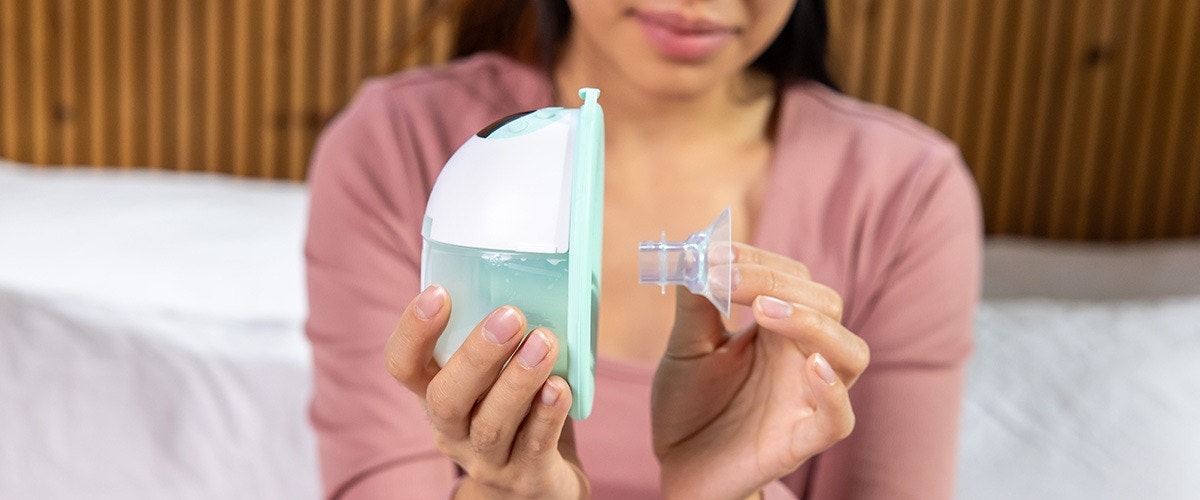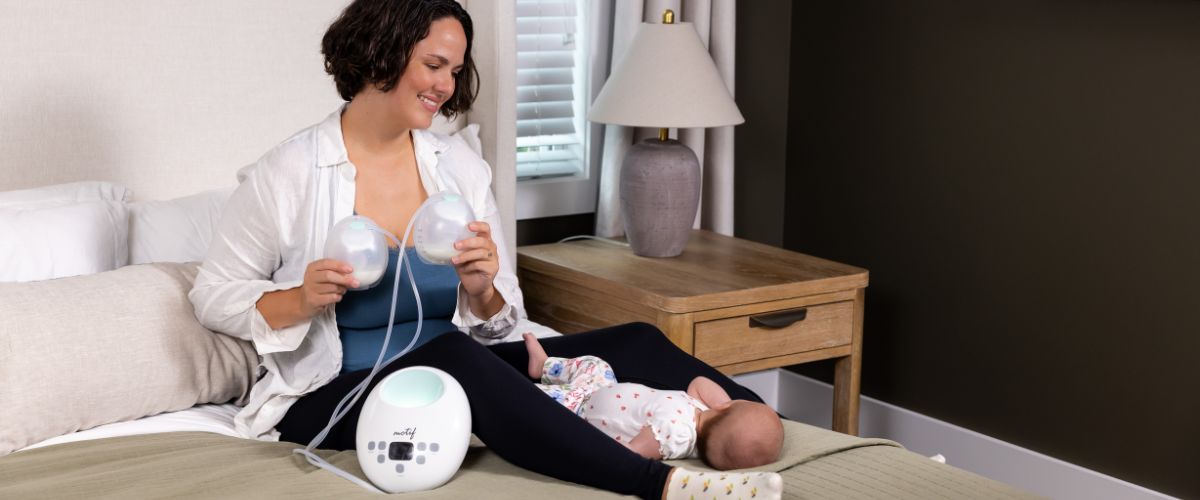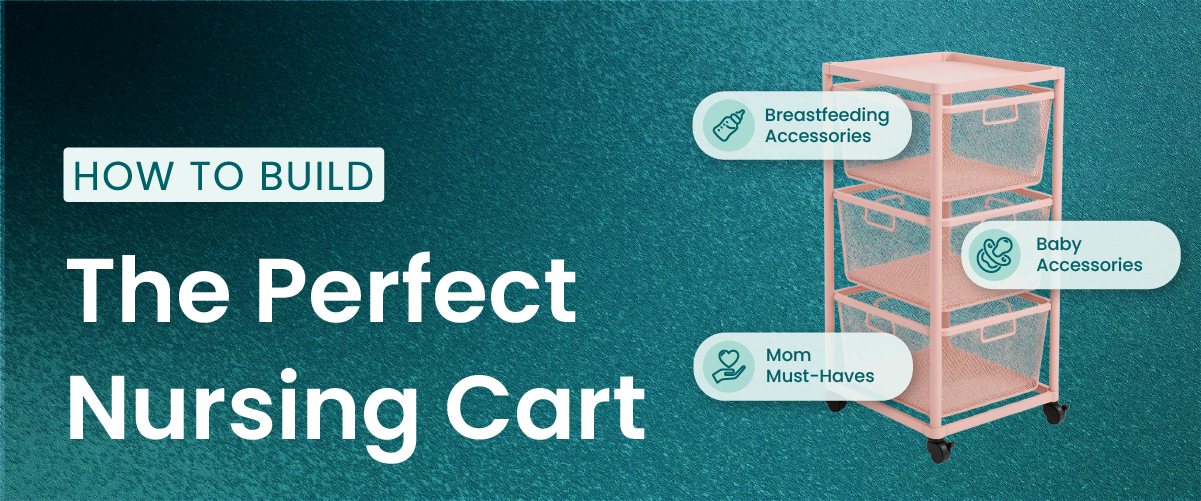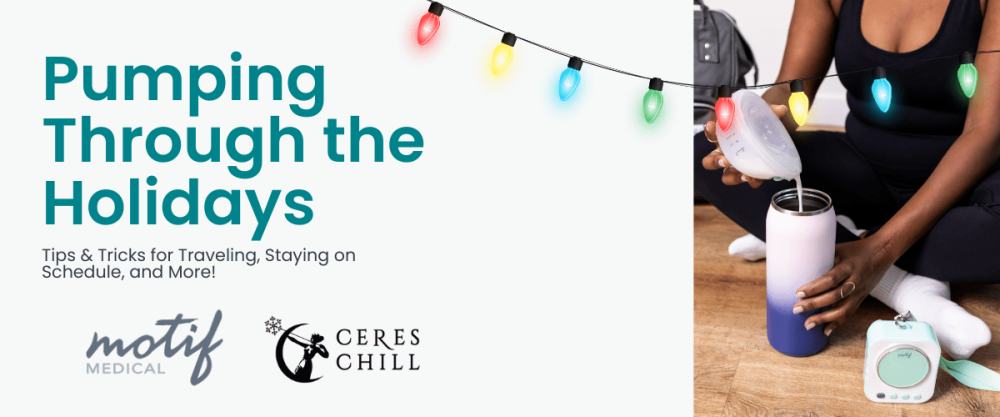Does Drinking More Water Increase Milk Supply?
Drink to thirst. Consume half your body weight in ounces of water. Drink a gallon of water per day. The more you drink, the more milk you’ll make. These are all recommendations I found in a quick Google search on hydration and breastfeeding. Which ones are true? What does the scientific research say?
In short, the evidence points to a huge amount of variability in the amount of water needed for breastfeeding women. This is because hydration is affected by a person’s environment, activity levels, metabolism, and diet. The Institute of Medicine recommends drinking 13 cups of water per day in addition to water obtained from foods.
First off, it’s important to know that a full milk supply is about 25 oz per day, so don’t be discouraged by the excessive amounts of milk that are often showcased on social media. While it is necessary to stay adequately hydrated to consistently produce a full milk supply, there is no evidence that excessive water consumption results in any increased milk production. Shoot for drinking about 13 cups of water per day by drinking glass with each meal and with each nursing or pumping session. There is evidence that drinking excessive amounts of water or other hydrating liquids can create what is known as water toxicity, but this is rare. Water toxicity can decrease your milk production. The bottom line is there is no benefit to drinking above and beyond your body’s basic needs.
What About Hydration and Electrolyte Balance?
Sodium, potassium, chloride, calcium, magnesium, phosphate, and bicarbonate are all electrolytes found in the human body. Electrolytes are minerals within the body that impact fluid balance, blood pressure regulation, bone building and maintenance, and hormone balance. While more research is needed, there is a significant amount of anecdotal evidence to suggest that electrolyte balance directly impacts milk supply. Many mothers report an increase in milk production from consuming foods and beverages high in key electrolytes such as potassium, sodium, and magnesium.
Breastfeeding mothers are at increased risk of electrolyte imbalance when excessive sweating occurs and during illnesses that cause diarrhea and vomiting. Electrolyte imbalances can also occur when there are deficiencies in a mom’s diet, which is incredibly common in the U.S. Eating a well-balanced, whole-food diet is the best way to support electrolyte balance. Beverages like coconut water, watermelon juice, and electrolyte powders mixed with water are often used to replenish electrolytes as well.
Does My Baby Need Extra Water in Hot Weather?
If your baby is under six months of age and fed breast milk on demand, then there is no need to offer extra water even in hot climates. Breast milk is made up of a high percentage of water and is customized to meet all of your baby’s needs. Babies over six months can safely consume 4 oz -8 oz of water per day, but many older infants get all of their hydration needs met through on-demand breastfeeding.
Tips for Staying Hydrated While Breastfeeding
What Counts as “Water”
While pure water is a fabulous choice for maintaining hydration, it’s not the only game in town. Flavored waters, juices, teas, and even soda can be hydrating. To support a healthy diet, opt for low-sugar options, preferably free of synthetic dyes. It has long been thought that caffeine has a significant diuretic effect, meaning it encourages your kidneys to flush extra fluids into your urine and out of your body. Newer research indicates that caffeine-containing drinks don’t contribute to fluid imbalance and may contribute to overall hydration. Still, caffeine does enter breast milk and can cause irritability and sleeplessness for your baby if consumed in excess. Your best bet is to limit caffeine intake to 300 mg or less and focus on non-caffeinated beverages as your main source of fluids.
Keep your drink with you
Water bottles and tumblers have become trendy accessories, but they also serve a practical purpose. Having your beverages of choice nearby increases the likelihood of you consuming adequate fluids throughout the day. Go ahead and splurge on a water bottle or tumbler that you love since you’re going to be carrying it with you throughout the day. I love options with a straw and handle.
There is even research that says we drink more through a straw when compared to drinking without a straw!
Drink what you like
While it’s important to consider sugar, additives, dyes, and calorie content for beverages, it’s important to consider flavor. We know that plain water is an excellent choice, but it is also perfectly acceptable to use a flavor enhancer or fresh fruit to make your H2O more palatable. If you prefer your drinks ice cold, be sure to invest in a water container that is double-wall insulated to keep your beverages chilled for hours.
Listen to your body
Many women report feelings of increased thirst and hunger during or just after a breastfeeding session. This is because your body has built-in mechanisms to trigger you to meet its nutritional needs. Pay attention to these cues and give your body what it’s asking for!
Don’t get obsessed
While it’s great to shoot for 13 cups of water a day, take care not to become consumed by counting your ounces. As moms, we have way too many things to worry about without obsessing over every ounce of liquid we consume. Instead, identify approximately how many times you would need to refill your water bottle or tumbler per day to get in the recommended amount. Then, establish a comfortable routine to help you stay on track without stressing about it.
Eat hydrating and electrolyte-rich foods
Watermelon, celery, soups, cucumbers, oranges, bananas, avocados, and sweet potatoes are just some of the options that help support healthy hydration and electrolyte balance. In general, focus on whole foods and avoid processed options when possible.
Resources
Dietary Reference Intakes for Water, Potassium, Sodium, Chloride, and Sulfate. (n.d.). https://doi.org/10.17226/10925
La Leche League International. (2023, September 26). Starting Solids - La Leche League International. https://llli.org/breastfeeding-info/starting-solids/
Montgomery, K. S. (2002). Nutrition Column An Update on Water Needs during Pregnancy and Beyond. PubMed, 11(3), 40–42. https://doi.org/10.1624/105812402x88830
Recommended Drinks for Children Age 5 & Younger. (n.d.). HealthyChildren.org. https://www.healthychildren.org/English/healthy-living/nutrition/Pages/Recommended-Drinks-for-Young-Children-Ages-0-5.aspx
Zhang, Y., Coca, A., Casa, D. J., Antonio, J., Green, J. M., & Bishop, P. A. (2015). Caffeine and diuresis during rest and exercise: A meta-analysis. Journal of Science and Medicine in Sport, 18(5), 569–574. https://doi.org/10.1016/j.jsams.2014.07.017
Information provided in blogs should not be used as a substitute for medical care or consultation.


